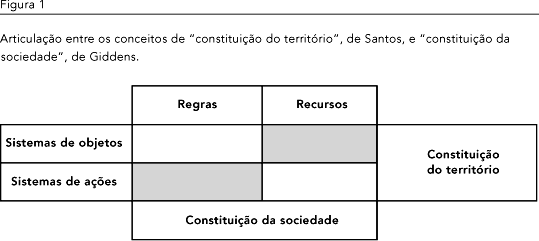Diagnoses of living conditions and health status, the constitutive elements for the reproduction of social life in various places, are listed and treated as contents disconnected from the territory. The recognition of social dynamics, habits, and customs is highly important for the determination of human health vulnerabilities, which originate in the interactions of social groups in given geographic spaces. The full use of the territory as a strategy for analyzing and intervening in health conditions presupposes the identification of geographic objects, their utilization by the population, and their importance for flows of persons and materials. It is thus necessary to develop methodologies for the recognition (both in the field and through secondary data) of objects and their forms, which are a condition for human action and existence. This article presents an approach to the incorporation of concepts from human geography in health practices, in light of two main authors: Milton Santos ("constitution of territory") and Anthony Giddens ("constitution of society").
Population Surveillance; Living Conditions; Geography

